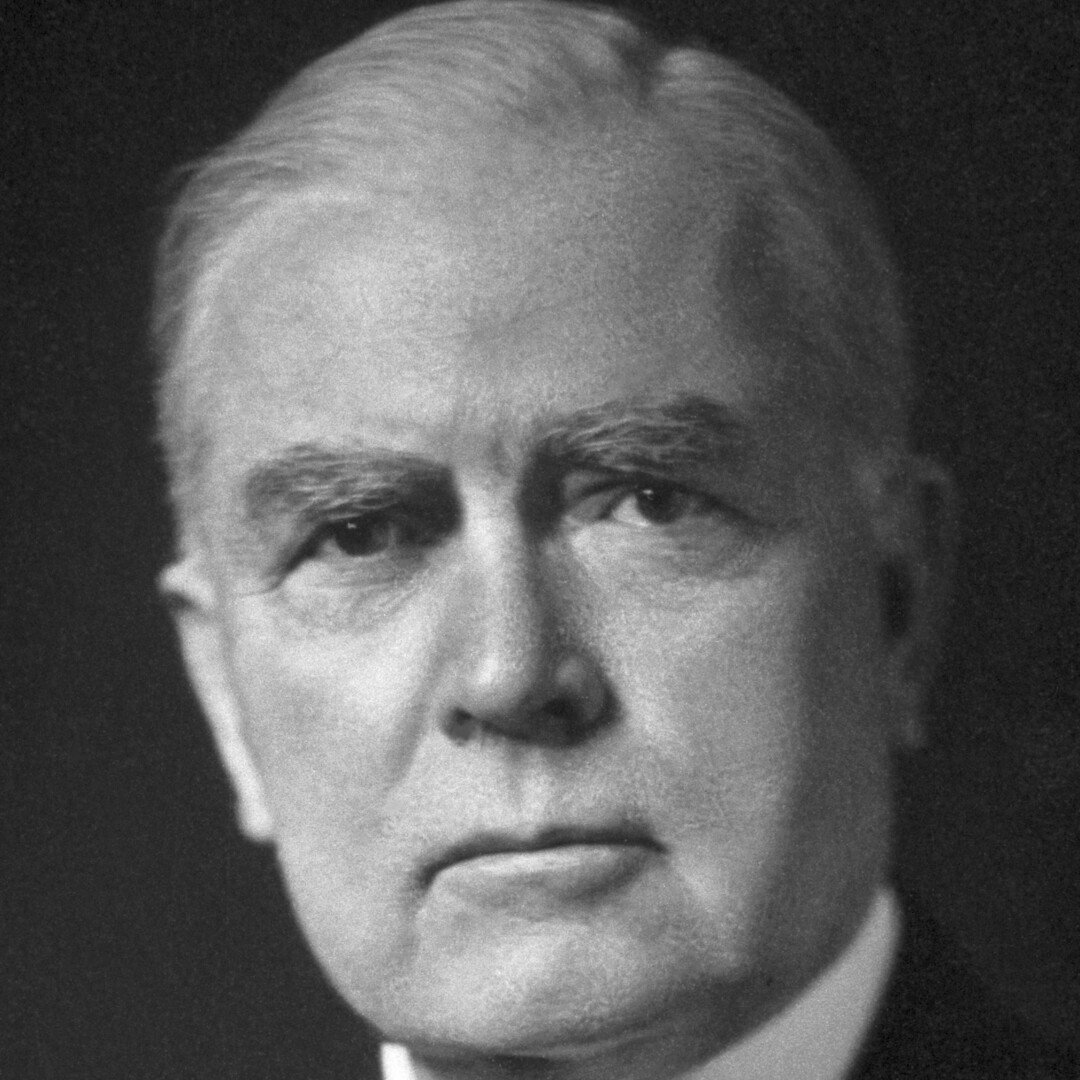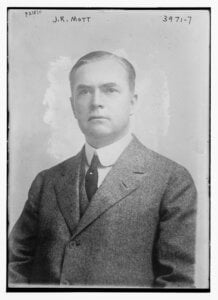John R. Mott
Speed read
John Raleigh Mott was awarded the Nobel Peace Prize for his contribution to the creation of a peace-promoting religious brotherhood across national boundaries. He shared the prize with Emily Greene Balch.

Full name: John Raleigh Mott
Born: 25 May 1865, Livingston Manor, NY, USA
Died: 31 January 1955, USA
Date awarded: 14 November 1946
Christian fellowship for peace
John Raleigh Mott, director of the Young Men’s Christian Association (YMCA), worked to create a Christian movement across national borders. The selection of Mott as Nobel Peace Prize laureate closely paralleled the decision taken in 1930, when Bishop Nathan Söderblom (Sweden) was awarded the peace prize. At the same time, it indicated that the Committee continued to afford Christian values high esteem after WWII. As a student, Mott felt called to spread the Christian message, subsequently dedicating his life to the YMCA, missionary work and efforts to reunite Christians throughout the world. During WWI and WWII, he spearheaded YMCA relief operations for prisoners of war. In the inter-war years, Mott criticised the oppression of colonised peoples and pioneered efforts in the struggle against racial discrimination.
"I have tried to help weave together all countries, all races of mankind and all the Christian communities."
John Mott, The New York Times, 20 December 1946.

"Perhaps no man has labored more assiduously than you in the promotion of international good-will."
President Harry S. Truman, The New York Times, 20 December 1946.
Young Men’s Christian Association (YMCA)
The Young Men’s Christian Association (YMCA) was founded in 1844 by George Williams (Great Britain), a young drapers shop employee. He sought to bring together Christians from different churches and social classes in a movement to spread the Christian message and deal with social need within communities. The movement quickly spread throughout Great Britain, the European continent and the USA. In 1855 it was organised into a worldwide association, which established its headquarters in Geneva in 1878. The YMCA provided extensive relief aid to soldiers and prisoners of war during both world wars. It became well-known among young people for its scout movement, which arranges camps for youths from all over the world.
Student and missionary leader
In addition to his efforts as secretary-general and president of the YMCA, Mott directed the World’s Student Christian Federation and the International Missionary Council. Through his work with the student organisation, he built up an international network of Christian students. Mott hoped that some of these potential church and state leaders could be groomed for peace-related activities. At the missionary conferences, Mott called for the protection of colonialised peoples against economic and social injustice. One of the delegates in attendance was Albert Lutuli, who became leader of the black liberation movement in South Africa in the 1950s.
Learn more
John Raleigh Mott was born of pioneer stock in Livingston Manor, New York, the third child and only son among four children ...
Disclaimer: Every effort has been made by the publisher to credit organisations and individuals with regard to the supply of photographs. Please notify the publishers regarding corrections.
Nobel Prizes and laureates
Six prizes were awarded for achievements that have conferred the greatest benefit to humankind. The 12 laureates' work and discoveries range from proteins' structures and machine learning to fighting for a world free of nuclear weapons.
See them all presented here.
